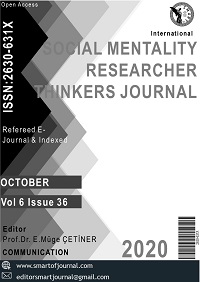Author :
Abstract
Bu çalışmada iki amaç benimsenmiştir. Bir yandan dijital dönüşümün teşviki ve Endüstri 4.0'ın geliştirilmesinde kamu inisiyatiflerinin temel uluslararası eğilimlerini belirlemeyi amaçladı. Bu, bazı ülkelere bazı tavsiyelerin ortaya çıktığı uluslararası "iyi uygulamaları" kurtarmak amacıyla yapılmıştır. Öte yandan, bazı KOBİ'lerinin dijital dönüşümünü teşvik edecek politikaların, uygulama özelliklerine özel dikkat gösterilerek araştırılması amaçlandı. Bu amaçla, aşağıdaki ülkelerde KOBİ'lerin dijital dönüşümünü teşvik eden politika ve araçlar incelendi ve analiz edildi: İspanya, Portekiz, Arjantin, Brezilya, Şili, Kolombiya ve Meksika. Çalışma, geçmişlerini ve gelişimlerini ihmal etmeden, bu konuyla ilgili en son planlara, stratejilere ve araçlara odaklandı. Tanımlayıcı belgesel tipi yaklaşım, kullanılan metodolojik strateji göz önüne alındığında önceden oluşturulmuş kategoriler tarafından yönlendirildi. Bu şekilde, KOBİ'lerin dijital dönüşümünü teşvik etmeye yönelik politikaların tasarım ve uygulama özellikleri, farklı düzeylerde kamu kurumları ve bakanlıklar, kamu-özel diyalog örnekleri arasındaki koordinasyona özel vurgu yapılarak analiz edildi.
Keywords
Abstract
This consultancy pursued a double objective. On the one hand, it aimed to identify the main international trends of public initiatives in the promotion of digital transformation and the development of Industry 4.0. This, with the purpose of recovering international “good practices” from which some recommendations to the countries of the Ibero-American space emerge. On the other hand, it was sought to investigate the policies to promote the digital transformation of Ibero-American SMEs, paying special attention to their implementation characteristics. To this end, policies and instruments that promote the digital transformation of SMEs in the following countries were surveyed and analyzed: Spain, Portugal, Argentina, Brazil, Chile, Colombia and Mexico. The study focused on the most recent plans, strategies and instruments around this issue, without neglecting their history and development. The descriptive documentary-type approach was guided by previously constructed categories given the methodological strategy used In this way, the characteristics of design and execution of the policies to promote the digital transformation of SMEs were analyzed, with special emphasis on coordination between the different levels of public bodies and ministries, public-private dialogue bodies, affected budgets and articulated systems for their evaluation and monitoring.





